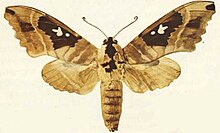
James Butler Hickok, better known as "Wild Bill" Hickok, was a folk hero of the American Old West known for his life on the frontier as a soldier, scout, lawman, cattle rustler, gunslinger, gambler, showman, and actor, and for his involvement in many famous gunfights. He earned a great deal of notoriety in his own time, much of it bolstered by the many outlandish and often fabricated tales he told about himself. Some contemporaneous reports of his exploits are known to be fictitious, but they remain the basis of much of his fame and reputation.
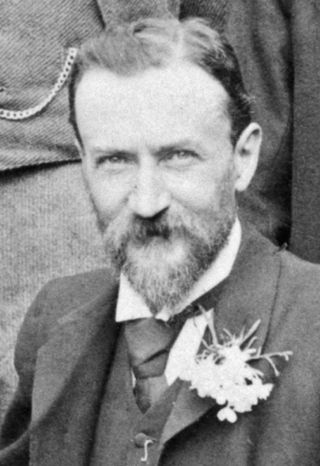
Arthur Gardiner Butler F.L.S., F.Z.S. was an English entomologist, arachnologist and ornithologist. He worked at the British Museum on the taxonomy of birds, insects, and spiders.

John William Burgess was an American political scientist. He spent most of his career at Columbia University where he in 1880 created the first graduate school in Political Science. He has been described as "the most influential political scientist of the period" and "the father of American political science."

The Hamburg Massacre was a riot in the United States town of Hamburg, South Carolina, in July 1876, leading up to the last election season of the Reconstruction Era. It was the first of a series of civil disturbances planned and carried out by white Democrats in the majority-black Republican Edgefield District, with the goal of suppressing black Americans' civil rights and voting rights and disrupting Republican meetings, through actual and threatened violence.
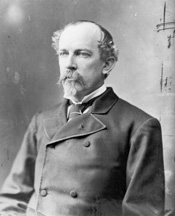
Matthew Calbraith Butler was a Confederate soldier, an American military commander, attorney and politician, and slaveholder from South Carolina. He served as a major general in the Confederate States Army during the American Civil War, reconstruction era three-term United States Senator, and a major general in the United States Army during the Spanish–American War.
The South Carolina civil disturbances of 1876 were a series of race riots and civil unrest related to the Democratic Party's political campaign to take back control from Republicans of the state legislature and governor's office through their paramilitary Red Shirts division. Part of their plan was to disrupt Republican political activity and suppress black voting, particularly in counties where populations of whites and blacks were close to equal. Former Confederate general Martin W. Gary's "Plan of the Campaign of 1876" gives the details of planned actions to accomplish this.

Walbridge Abner Field was an American lawyer, jurist and politician who served as a member of the United States House of Representatives from Massachusetts, and as the chief justice of the Massachusetts Supreme Judicial Court.
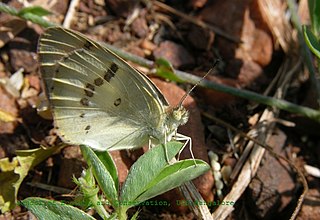
Colotis, called orange tips or Arabs, is a genus of butterflies of the subfamily Pierinae found mainly in Africa and south-western Asia. The larvae of all Colotis species specialize on plants in the family Capparaceae.

Amata is a genus of tiger moths in the family Erebidae. The genus was erected by Johan Christian Fabricius in 1807.

Cosmosoma is a genus of tiger moths in the subfamily Arctiinae. The genus was erected by Jacob Hübner in 1823.
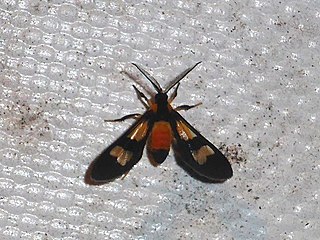
Leucotmemis is a genus of moths in the subfamily Arctiinae. The genus was erected by Arthur Gardiner Butler in 1876.

Ormetica is a genus of moths in the family Erebidae.
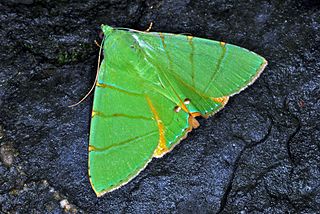
Eulepidotis is a genus of moths of the family Erebidae erected by Jacob Hübner in 1823.

Ambulycini is a tribe of moths of the family Sphingidae first described by Arthur Gardiner Butler in 1876.

Smerinthini is a tribe of moths of the family Sphingidae. The genus was erected by Augustus Radcliffe Grote and Herbert C. Robinson in 1865.

The Church of the Messiah at 728–30 Broadway, near Waverly Place in Greenwich Village, Manhattan, New York City, was dedicated in 1839 and operated as a church until 1864. In January 1865 it was sold to department store magnate Alexander Turney Stewart and converted into a theater, which subsequently operated under a series of names, including Globe Theatre, and ending with New Theatre Comique. It burned down in 1884.
The General Butler was a schooner-rigged sailing canal boat that plied the waters of Lake Champlain and the Champlain Canal in the United States states of Vermont and New York. Built in 1862 and named for American Civil War General Benjamin Franklin Butler, she sank after striking the Burlington Breakwater in 1876, while carrying a load of marble. Her virtually intact wreck, discovered in 1980, is a Vermont State Historic Site and a popular dive site; it was listed on the National Register of Historic Places in 1998.
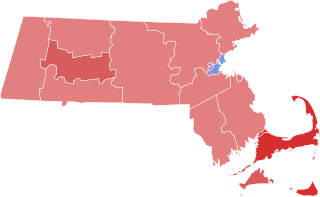
The 1876 Massachusetts gubernatorial election was held on November 7. Incumbent Republican Governor Alexander H. Rice was re-elected to a second term in office over former Minister to Great Britain Charles F. Adams.
